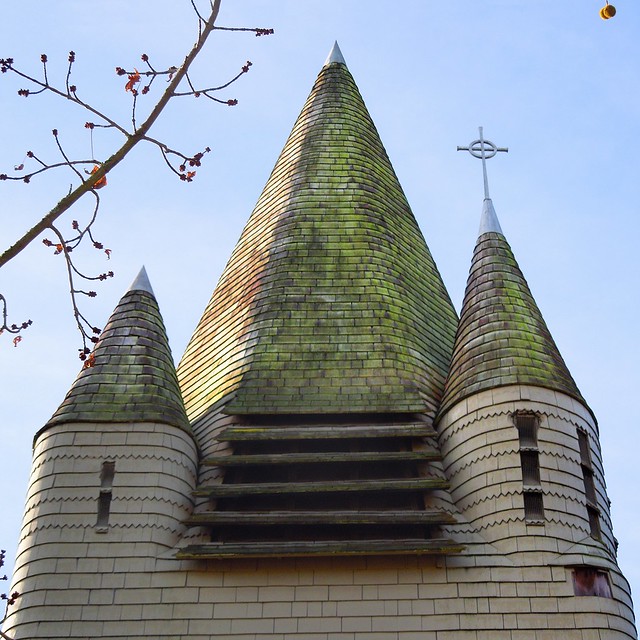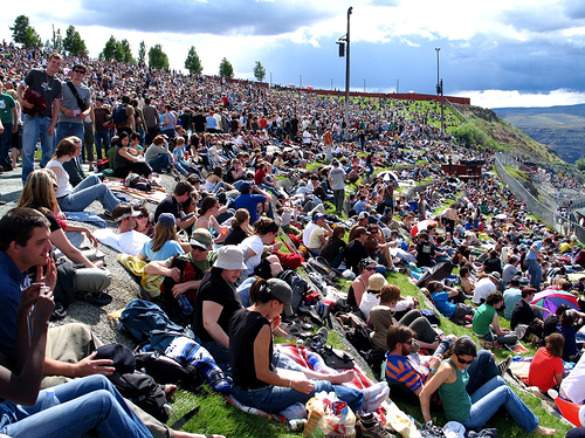
First published in The Beloved Disciple, the monthly newsletter of St. John's Episcopal Church, Petaluma: http://www.saintjohnsepiscopalpetaluma.org/page/newsletter
People sometimes ask
me what my vision is for St. John’s.
It’s been a hard question to answer because a vision takes time to
develop, and time to communicate. It is
not a plan of action, but a description of where we hope our actions will take
us. It isn’t about what we will do so
much as about who we will be. As priest
and pastor, it is part of my job do articulate a vision, but it can’t be just
something I think up on my own—it has to be something I listen for, in what
others are saying, in my own heart, and in the conversations between us. During the four years I’ve been here we’ve
had a lot of conversations about what matters most, and what we hope we are
becoming. I have tried to listen
carefully to what’s been said. And during
this year’s season of discernment, I’ve made time for conversations with
trusted friends about what I’ve learned and what inspires me to want to make a
new commitment to the work of this congregation. I’ve also done some listening to what is
being said in the wider Episcopal Church about its challenges and opportunities
for the future.
What follows is the
fruit of these conversations. It is a
personal statement, and I don’t claim to speak for everyone at St. John’s. But I offer it to you in the hope that some
part or parts of it will speak to you, and illuminate your vision for the
parish.
St. John’s is a place where people are drawn by the love of
God, called to seek the divine image in themselves and one another; uniting in
praise and thanksgiving at Christ’s table, in contemplation and discernment, and
in active works of wisdom, justice, beauty, and truth, we share here on earth
in the joys of heaven. It is a place
from which each of us is sent to find the unique vocation that grows from our responsibilities
and gifts, and to play our part in the mission of Christ to the world. We are a circle from which no one who is not
a danger to others is excluded, in which every voice is heard, and every truth
respected, where no one is above criticism, and no one is beyond hope.
We foster a religious culture devoted to the maturation of
our spiritual gifts and the satisfaction of our deepest needs by the grace of
God—through taking creative risks, telling the truth, making repentance, seeking
reconciliation, and empowering one another for servant-leadership in the world. We take nourishment from the testimony of the
Hebrew prophets and sages and the Apostolic communities; from the teaching and
example of holy women and men of the past and present; from the riches of
Christian tradition in music and the arts, mysticism, theology, and social
action; from our membership in a worldwide communion of Anglican brothers and
sisters, and the ecumenical body of Christ; from the rhythms of the hours and
the church year, and the sacramental elements of grace.
We are a place for joyous worship, with strong participation
by people of all ages, representing the cultural diversity of our community,
and bringing the talents of many leaders together in stirring, centering,
prayerful, and purposeful celebrations of the Holy Spirit. We are a learning community practicing the
arts of peace—compassionate dialogue, open inquiry, and courageous
discipleship. We seek personal encounter
across social, political, and religious barriers, in the shared pursuit of
mutual understanding and the common good.
We offer space for a deeper and kindlier look at the world in which we
live, where simplicity and faith allow us to hear the voice of the earth, of
our bodies, and of the heart, and to take reverent and practical steps to
restore the balance of the world.
We are wise and loving stewards of the goods we receive,
cherishing the past and preparing for the future without illusions about
either, but placing our trust in God’s covenant faithfulness, the truth of the
Gospel, and the resilience of creation.


